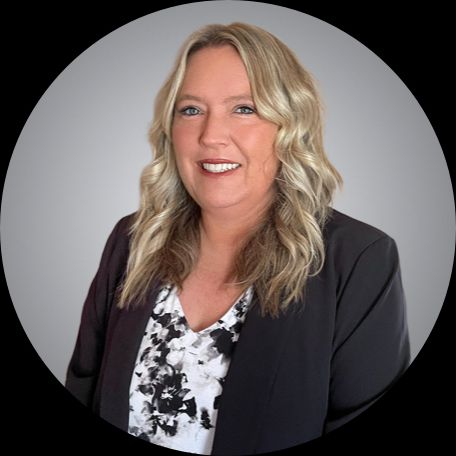What is Gerontology?
Learn about gerontology and the benefits of working with a gerontologist. Seniorly explains how these professionals can help you navigate healthcare.

According to the World Health Organization people in the United States are living longer. Between 2015 and 2050, the proportion of the world's population over 60 years old will nearly double from 12% to 22%.
As reported by the Pew Research projections in 2015, by 2050 about one in five middle-aged Americans will be over age 65, and about 5% will be ages 85 and older. The pace of the aging population is growing, and this is growing fast. The field of gerontology can help seniors to prepare for a longer lifespan.
What is gerontology?
The study of gerontology is the study of the aging process and its effects on individuals, families, communities, and societies. The study of aging includes multidisciplinary aspects of aging, such as the biological, cognitive, and sociological effects of aging. Gerontologists focus on four well-defined processes: chronological aging, biological, psychological theories about how personality changes over time to become more introverted or extroverted, and social models describing changes in relationships in society that affect our everyday lives.
- Chronicle aging. Aging is based on a person’s years lived from birth.
- Biological aging. Refers to the physical changes of a person.
- Psychological aging. The process of change that happens in sensory and perceptual processes, cognitive abilities, adaptive capacity, and personality. The changes happen gradually or more rapidly as time goes on.
- Social aging. The process of adapting to social changes in one's environment along with the changing roles with friends, family, caregivers, and acquaintances.

What is the difference between geriatrics and gerontology?
Geriatrics is patient-centered care for older patients. Geriatricians specialize in the advanced care of older adults and their quality of life, as well as treatment of diseases. These healthcare professionals treat and diagnose ailments such as:
- Dementia
- Arthritis
- Hypertension
- Osteoporosis
- Incontinence
- Cancer
- Hearing and vision loss
- Osteoarthritis
- Insomnia
- Diabetes
- Depression
- Heart failure
- Frailty
- Balance issues
The gerontology field incorporates a wide range of fields, including sociology, psychology, economics, medicine, and nursing. Gerontologists are involved in research on topics such as healthy aging or dementia. They also work to develop public policies that will improve the lives of older people through programs like Medicare.
Aging is something that everyone goes through. Although there are different emphases in gerontology and geriatrics, the ultimate goal of both fields is to understand aging so people can maximize their abilities while achieving a high quality of life.
What is a gerontologist?
Gerontology is the study of the processes associated with aging on the social, psychological, and medical perspectives of old age. It's also an art because it involves meeting older persons in their spaces and learning about them as individuals.
Gerontologists study two main types of gerontology: social gerontology and biogerontology. As their names indicate, social gerontology deals more with the emotional and social aspects of aging while biogerontology studies the physical and biological aspects.
Gerontologists are an important group of experts because they educate others about the process of and benefits that come with aging. They give lectures, publish articles on the topic, and sometimes produce films to help people better understand what it means to age well.
To become a gerontologist a bachelor’s degree in gerontology is needed. Gerontology degree programs prepare students to address the mental, physical, and social needs of an older population. Graduates can pursue careers in growing fields like social work, health administration as well as occupational therapy. A graduate degree can also be obtained through schooling to learn even more about the field with online programs or in person.
Gerontologists study the aging process and have been called "the experts of old age." Gerontology is a complex field that includes social work, nursing, psychology, and sociology. You might be surprised to learn that gerontologists are not doctors. Some even call themselves “aging specialists” because they focus on all aspects of older peoples’ lives including their mental health, physical health changes, and the challenges that come with living longer than ever before. This specialization is one of the many things gerontologists do for seniors to try to make society more welcoming for them and by helping them understand how to adapt as they grow older.

What are the duties of a gerontologist?
Gerontologists come from many different backgrounds and work in a variety of fields, but they're all united by their shared interest in the wellbeing of our aging population.
Gerontologists can work directly with older adults in many different fields including caregiving. Most of them, however, are behind the scenes working on medical research or education and administration. Here are a few options for careers in this field:
Geriatric Social Workers. These professionals help families deal with the increasingly difficult problem of elderly living conditions, income level, and lack of a support system. They meet with elderly persons to learn about their needs before establishing an intervention plan that will best suit them.
Life Enrichment Professional. These professionals provide adult enrichment programs to help with recreational therapy for senior citizens. Life enrichment specialists design and facilitate ability-appropriate programs at adult day care or residential centers. This can include arranging activities as simple as crafts or as involved as community initiative plans.
Personal Care Aides. Home health workers assist with personal care in the patient's home. Their responsibilities can include everything from dispensing medications to bathing and dressing. They also may cook, clean, and do other housekeeping functions. These aides work primarily at residential facilities like nursing homes but sometimes will assist family members who need help caring for loved ones living at their own residence while recovering from an illness or injury.
Facility Directors. These administrators oversee the operations of facilities like nursing homes and assisted-living facilities. They are responsible for managing the facility's personnel and budget.
The growing demand for gerontologists
As people live longer, the need for gerontologists to care for them also increases. By 2060 the number of Americans over the age of 65 is projected to grow to over 98 million. The demand for gerontologists is steadily increasing.
Since gerontology covers many different aspects of aging, there is an abundance of jobs and industries to choose from. Getting a higher education degree in gerontology will open doors to many career paths.
A gerontology degree is a versatile degree for those looking to work in various industries. Government workers, medical professionals, nonprofit volunteers, and business executives can all double as gerontologists depending on the fields they serve in.
What can you learn from gerontology?
The importance of studying gerontology is that you learn how we all age. Since the senior population is increasing rapidly, gerontology research is important for us all. Gerontologists research all aspects of the effects of aging to find new treatments, solve critical problems, and extend life expectancy.
One of our staff gerontologists, Grace Matelich, has the following to say about her role at Seniorly:
“I was personally drawn to the field through a desire to learn more about disease progression throughout the life course, lifestyle factors and modulators of age-related disease, as well as better understand the structure of the healthcare system. I wanted to really dig into how and why we get sick and what we can do to improve our own vitality and rely less on an increasingly burdened system, while also getting a better idea of how our healthcare structure needs to change to better serve the increasing number of chronically ill and aging individuals.”
What are the benefits of working with a gerontologist?
Working with a gerontologist is like having a life partner. Someone who is going to help connect you to the resources and guidance that you need as you or your loved one age.
Having a gerontologist at your disposal allows you to connect with and have someone at your fingertips to contact about things such as insurance questions, benefits such as Medicare and Medicaid, Veterans assistance, or how to pay for your long-term care.
Seniorly has a team of gerontologists that will work with you and your family pre and post-move to answer any questions you may have and to offer any resources you may need. Whether you are looking for in-home care or long-term care, our staff will help you to navigate the healthcare system and find the answers you are looking for.
Sometimes all you need is a caring ear to discuss the difference between assisted living and respite care. The gerontologist team at Seniorly can explain all the terminology and get you on the right track.
How can Seniorly help?
Don’t wait until a crisis happens to reach out for assistance. Seniorly is just a phone call away at 855-606-1009. Seniorly offers a personalized approach to help you find the right care for your loved one. Whether it is in-home or assisted living, we have an expert on staff ready to answer any and all of your questions so that you can make difficult decisions with confidence.
When you're feeling challenged navigating your aging care options, Seniorly is here for you. We offer empathetic ears and can lend our expertise and advocacy skills to help navigate those next steps in your health care journey.
Lydia Bruno boasts over ten years of technical writing, having been a compassionate caregiver for over five years for seniors, and working within senior care facilities with a high level of dedication, care, and compassion for older adults and their families. When Lydia isn’t writing she is spending time with her husband and four daughters or enjoying time in her garden.
To learn more about Seniorly's editorial guidelines, click here.
Sign up for our Healthy Aging Handbook
Seniorly’s Senior Living experts created a comprehensive handbook to help people age happily while ensuring they love where they live. Enter your email address below to receive your copy and learn more about Healthy Aging and Senior Living.*
*By submitting your email address above, you consent to receive occasional email communications from Seniorly, including educational content and tips, newsletters, and other relevant updates and offerings. You can unsubscribe at any time and we will never sell or distribute your email address to a third party. You can view our Privacy Policy here.
